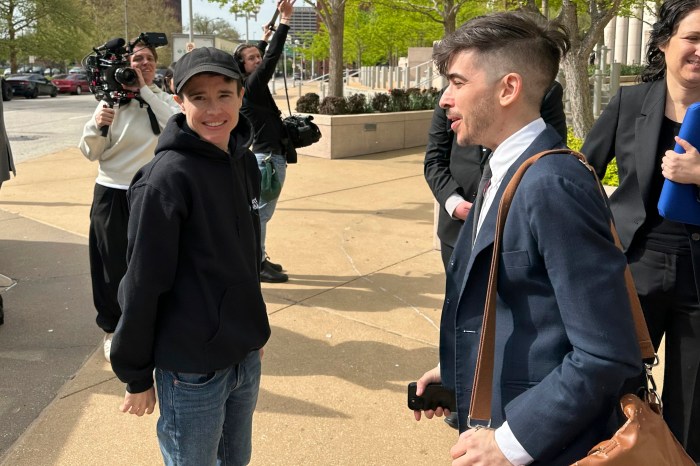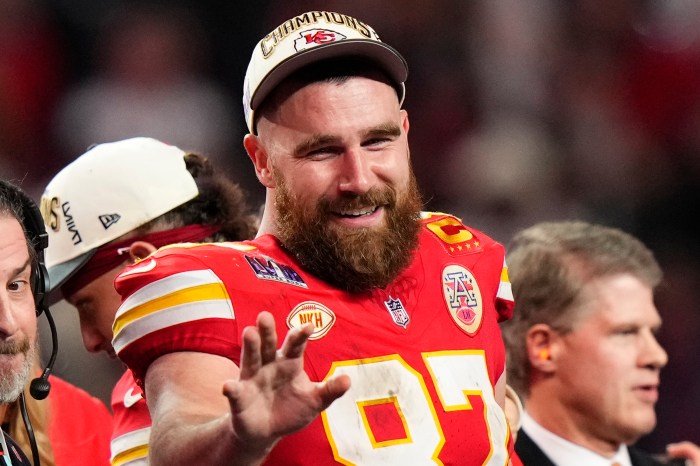Anti-gay, religious demonstrators arrested for their disruptive activities during a 2004 Gay Pride street fair in Philadelphia have lost their federal free speech lawsuit, and, in San Diego, a high school student's bid to wear an anti-gay T-shirt to class has been rejected.
In an opinion announced on January 18, U.S. District Judge Lawrence Stengel found that Philadelphia police acted appropriately to preserve public order and the free speech rights of the Gay Pride event's organizers.
There has been recurring controversy over the annual street fair, at which a group of “Christians who believe that homosexual behavior is sinful” have each year sought “to warn others about the destructiveness of sin through public proclamations of the gospel of Jesus Christ.” The anti-gay protesters “communicate their message by displaying signs, offering literature, and engaging in open-air preaching,” according to Stengel's opinion.
Anti-gay, religious demonstrators arrested for their disruptive activities during a 2004 Gay Pride street fair in Philadelphia have lost their federal free speech lawsuit, and, in San Diego, a high school student's bid to wear an anti-gay T-shirt to class has been rejected.
The OutFest street fair, organized by Philly Pride Presents, sponsors of a June celebration, takes place in October in connection with National Coming Out Day. In 2004, it was slated to cover 15 Center City blocks in an area known informally as the Gayborhood. The event had a police permit that allowed Philly Pride to close streets and enclose the area to control admission and maintain security.
Based on previous clashes with the anti-gay religious demonstrators, Philly Pride asserted, in a letter to the police department, that it had the right to “maintain the integrity of OutFest's message” by excluding anti-gay protesters. The letter asserted that this “will protect all persons and will minimize the city's exposure in the unfortunate event of any incidents related to the protestors. It will also uphold Philly Pride's constitutional right to control its message of LGBT pride and equality.”
The irony of this is clear. The letter invoked the 1995 U.S. Supreme Court decision upholding the right of St. Patrick's Day parade organizers in Boston to exclude a gay Irish group from participating based on their right to control the message being conveyed under their permit. Philly Pride was asserting the same right-to preserve the pro-gay message of OutFest by excluding protestors.
The police rejected that request, and was silent on Philly Pride's resulting decision to use volunteer human buffers to shield fair-goers from the protesters. Police said they would make decisions on the spot based on the need to protect public order and safety.
During the fair, the anti-gay group, met by human buffers, mounted its protest and inspired angry reactions from the crowd. The police soon had a potential mess on their hands, and instructed protesters to retreat to an area on the fringes of OutFest, near a popular gay bar, on the grounds they were blocking access to vendor booths and other OutFest events. The protesters refused to move and were arrested for disorderly conduct. One protestor lay on the ground and had to be forcibly removed.
The protestors, at OutFest for less than 30 minutes, were held in jail for 21 hours before their release. Criminal charges were eventually dropped.
They claimed that police had violated their civil rights. Judge Stengel termed the plaintiffs' perspective “simplistic: They claim a freedom of speech without limits.”
“The plaintiffs ignore the context of their actions and advance a constitutional argument untethered to the facts of this case,” the judge wrote. “The First Amendment discussion does not stop with the recognition that the plaintiffs were speaking in public. The government has a limited ability to restrict free speech rights, even in a public forum. It is a well-settled rule that the government may enforce reasonable time, place, and manner regulations as long as the restrictions 'are content-neutral, are narrowly tailored to serve a significant government interest, and leave open ample alternative channels of communication.'”
Stengel found that the police response to the plaintiffs' action was “a response to context, not content.”
Noting that Philly Pride had a police permit, but the protesters had not sought one, the judge wrote, “Permitting schemes have long been recognized as a content-neutral method for allocating free speech rights in the public forum. These schemes prevent diverse groups with different messages from expressing their views simultaneously, thus creating 'a cacophony where no one's message is heard' and further enforce that one individual has no right to drown out the message of another.”
Stengel found that “issued permits can be enforced to protect the permitted message even if this excludes other messages.”
The court pointed out that this was not a case of prior restraint of speech, because the police had specifically rejected Philly Pride's request to bar the protestors from entering OutFest. The city's position was that so long as they did not present a public order problem, anybody was free to attend an event held on public property. It was only when things threatened to get out of hand due to the protestors' in your face anti-gay behavior that the police took action. The protestors would not have been arrested had they promptly complied with orders to move.
Stengel's January 18 ruling anticipated a San Diego ruling, a week later, in the continuing battle over the refusal of Poway High School officials to allow a Christian fundamentalist student to wear an anti-gay T-shirt to class. Last year, the U.S. Court of Appeals for the 9th Circuit ruled that the free speech rights of students could be curbed by the school both to preserve order and to protect the rights of gay students to be free of harassment. It sent the case back to a trial judge for final disposition.
District Judge John Houston reviewed the claim by Kelsie Harper, the younger sister of Tyler Harper, the original plaintiff who has since graduated, that she has the right to wear a T-shirt signaling biblical condemnation of homosexuality. The judge concluded that the school was entitled to forbid Harper to wear the shirt, on the grounds specified by the appeals court.
The Harper family has asked the U.S. Supreme Court to review that ruling, and a decision on their petition is expected soon. This is just one of several lawsuits around the country by self-proclaimed religious students who attempt to wear anti-gay slogans on their clothing in response to National Coming Out and National Day of Silence observances held at public high schools in support of gay student equality.

































